Review: Primavera Sound 2018
A grandiose platform for the experimental and outlandish, all under the Catalan sun.
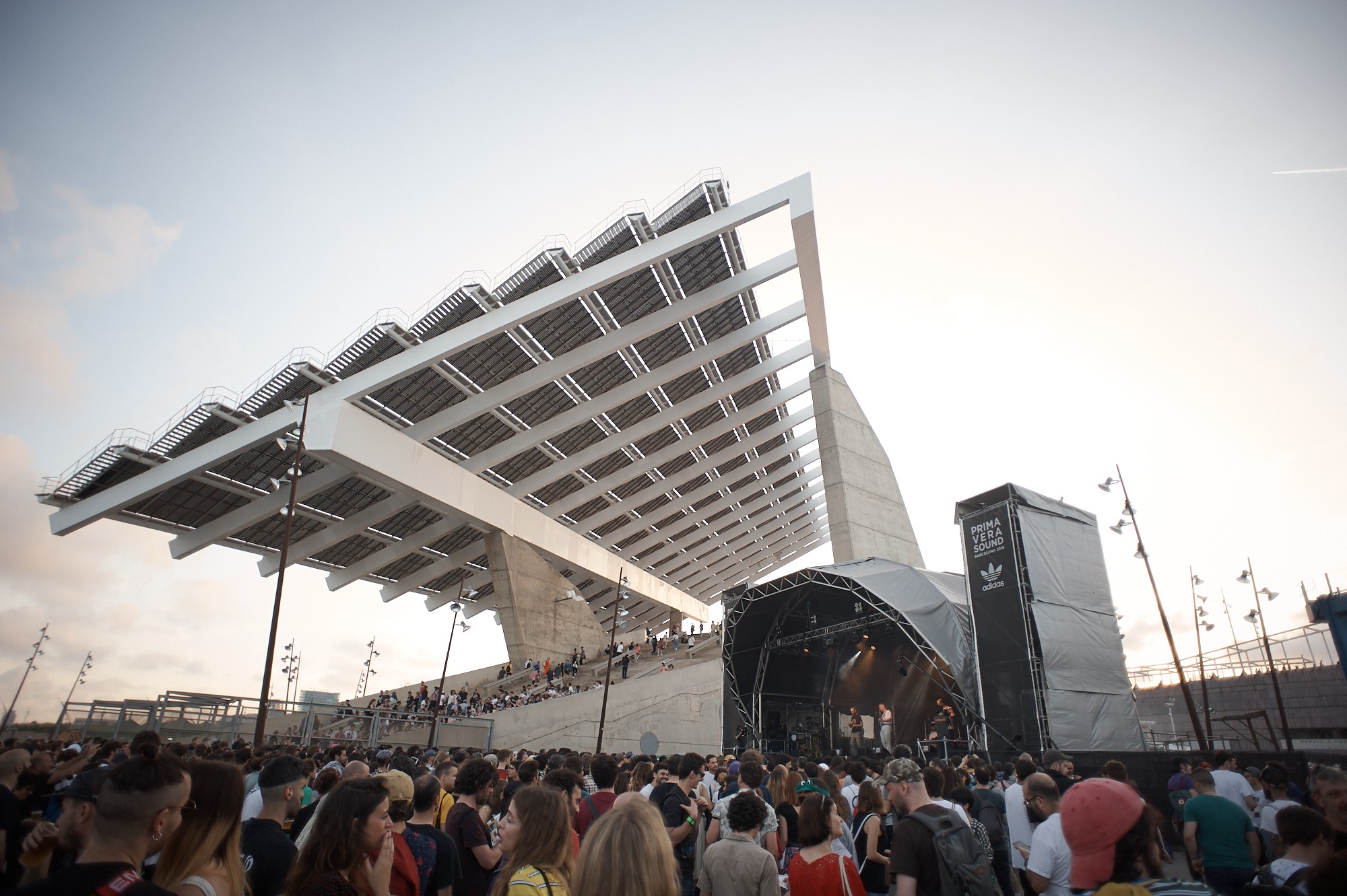
With several stages set across the beach in Barcelona, Primavera is the European equivalent to Coachella, albeit one with more exuberant headliners and a long trail of unheard-of and daring warm-ups. While the main stages draw the biggest crowds with acts such as Nick Cave & The Bad Seeds, A$AP Rocky, and Migos (who failed to show up), there’s an abundance of beachside showcases and performances mixing together rock bands with electronic live performances, and DJs.
Located in the city’s harbor-side Parc del Forum, an area I’d only visited previously for Off-Week events, Primavera is an extremely well-organized event, with a very people-first approach. There’s very little queuing, entrance to the event is quick and painless, and there’s ample room to watch the music. The only qualms really lie in the programming, and the amount of clashes between must-see acts—for instance, James Holden versus Björk was definitely one of the pain points on the weekend. The programming is rich and diverse allowing everyone to have a little bit of something over the weekend—like a Spanish tapas course of musical treats.
Performance wise, the Primavera and Pitchfork stages stood out across the weekend with show-stopping live talent. On Thursday, there was a fresh juxtaposition between the headlining sets of Björk and Swedish counterpart Fever Ray, who played just afterward. The Icelandic icon created a visual and sonic narrative that questioned whether we could imagine a future where technology and nature could co-exist and thrive. On stage, she was surrounded by plants and moving organic rigs filled with pixie flutists. Playing a lot of music from her most recent releases, Björk also re-worked her older songs into this contemporary style—one defined by minimalistic-flute-foke. With such a staggering setup, her latest musical aesthetic lacks the punch and weight for such a large crowd, and while it’s easy to get lost in her ever-rotating cast of performers and backdrops, her music sadly trickled through the masses and was lost on such an occasion. Karin Dreijer’s Fever Ray project, however, did not miss anything, with her sexually-liberating theme of power, politics, and love, and overall queerness. The live show, backed with a band and two backing dancers and vocalists played out like an operatic, gay-techno-opera. Two songs in and the band had their hands in the air chanting “this country makes it hard to fuck” along to “This Country.” Focusing mainly on newer material, the extremely queer-set was one of the most powerful of the weekend with its heavy-hitting beats, light shows, and terse messaging, especially when it came to the set’s standout track, “To The Moon And Back,”—one of the best tracks from Dreijer’s latest LP Plunge.
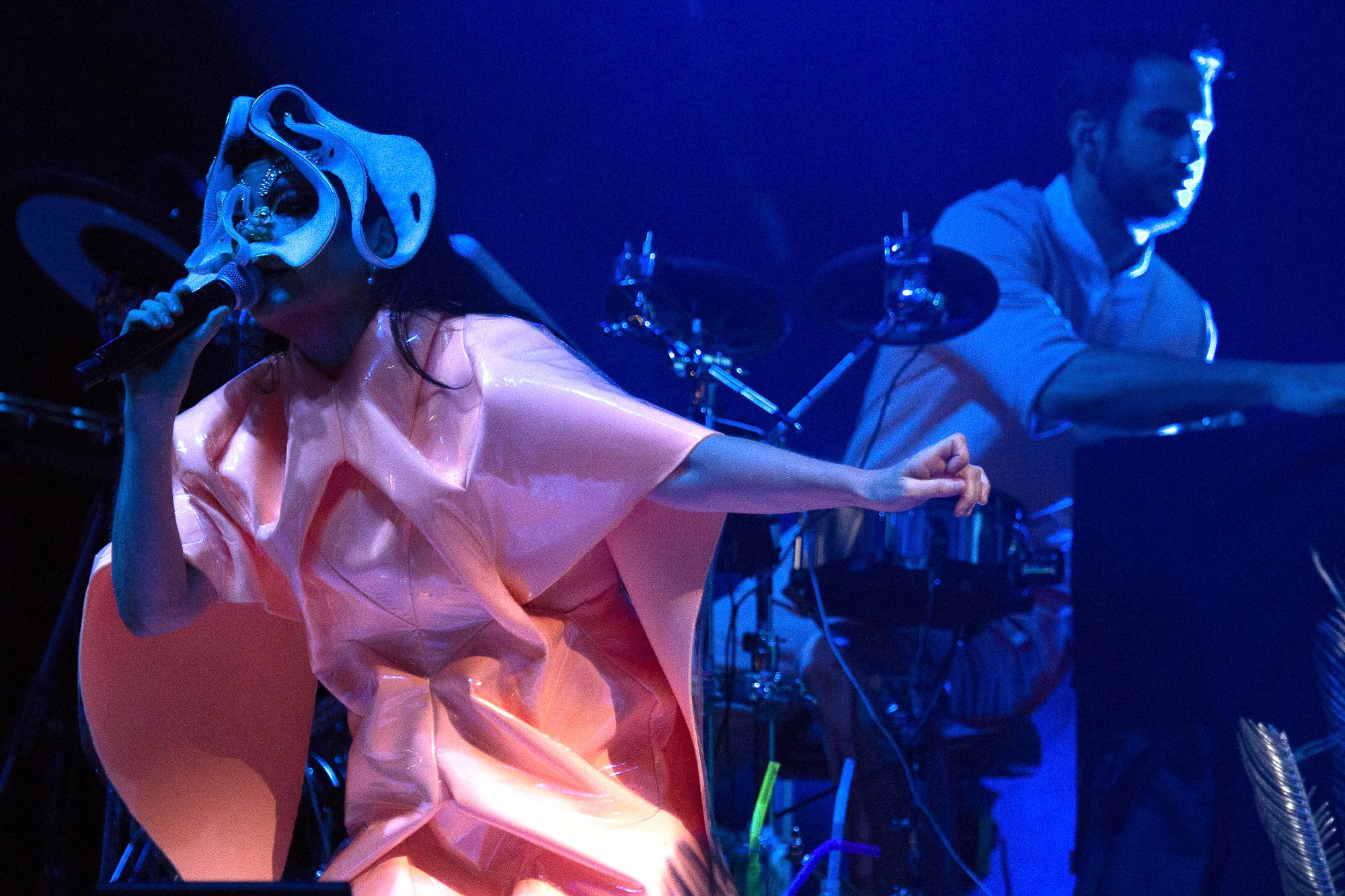
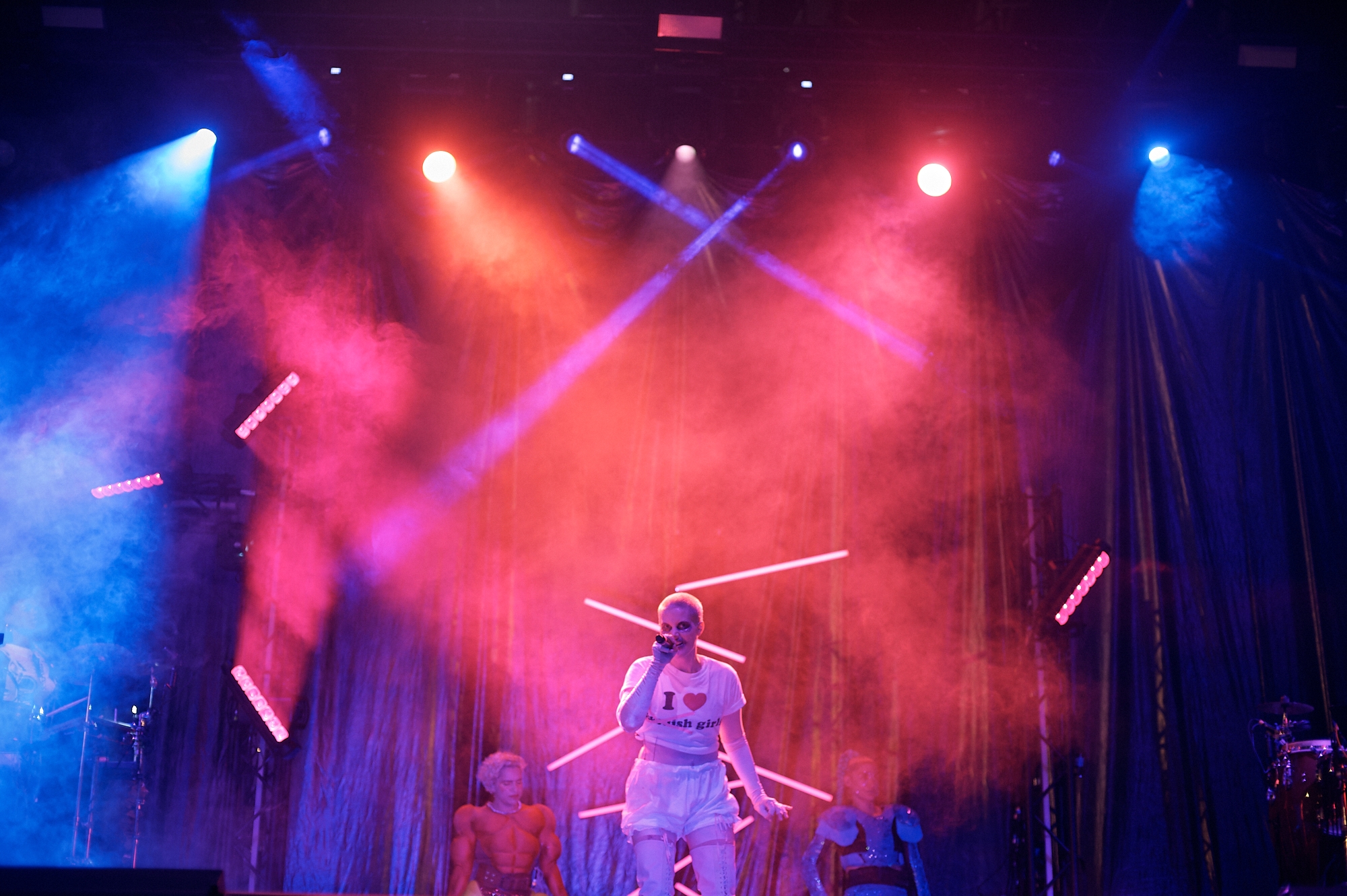
There were plenty of live electronic acts across the weekend, especially on the Bacardi Live stage. Mount Kimbie delivered an extremely rousing performance, showcasing their expanded new setup with two additional members; with more drumming, vocals, and bass guitars higher in the mix, the London producers are edging their way closer to being a fully-fledged krautrock band. Floating Points disappointed with a set that mixed together his own mainly older productions—the set lacked the punch of his live band, or soul and disco rarities DJ shows. The same can be said for Four Tet, although he doesn’t seem to disappoint the more ardent of fans. Jon Hopkins brought the epic, with loud and live reinterpretations of his more heavy hitting tracks, while Thundercat did what he does best, taking his hook-laden, funk melodies and blasting them into interstellar jazz-dimensions, by freestyling-the-fuck out of everything, mesmerizing the crowd with his bass-guitar wizardry.
Nils Frahm’s set on the Primavera stage highlighted what a joyful enigma he can be live. With his studio setup taken from his latest LP All Melody, the bouncy German producer weaves between keyboard and synthesizers like a minimalistic Jean Michel-Jarre. The baroque-like techno, built around retro synths, and a style of electronic music that was fashionable over a decade ago shouldn’t work for peak-time festival crowds, but somehow Frahm’s dexterity, craft, and showmanship helps him deliver an uncanny and unwavering performance that shows why he’s at the peak of his game. Featuring a lot of his latest tracks, remolded for a festival setting, he turned his wistful ambiance into a goldmine of elaborate, bouncing electronic melodies.
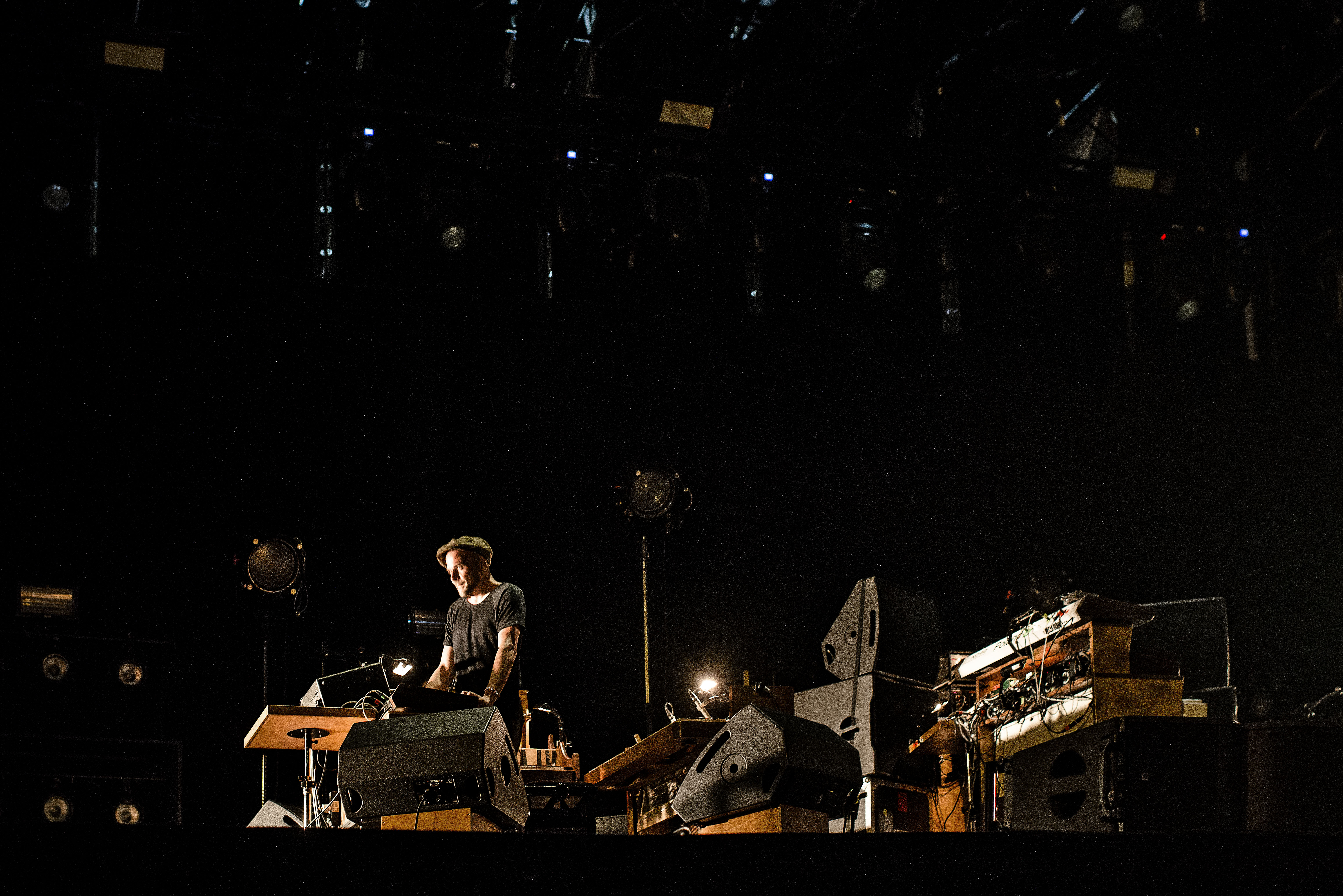

DJ-wise, Saturday’s selectors proved to be most invigorating with back-to-back showcases courtesy of Dekmantel and Hivern Discs. Facing the sun-kissed, afternoon-beach ravers, the Dutch label brought together Casper and Thomas’ Dekmantel Soundsystem, alongside Palmbomen II, with UK fun-boy Palms Trax closing out the party. Playing a mixture of exotic wave and Afro-funk, the likes of which are only known to the collectors and stockists at Rush Hour, Palms Trax’ set played defiance to any potential Shazaming, as he moved the dancers with one carnival anthem after another. Once the beach stage had closed, it was only a quick step over to the Desperados Club, where Hivern Discs’ Alicia Carrera gave a grade A class in the art of the warm-up. Not afraid of taking things a bit to the weird side, the psychedelic DJ played a range of wavey breaks, electronics, and tribal psych-rock, subtly upping the tempo across her 90 minute set, before finishing with a crescendo of lo-fi house and chugging beats, with the African-esque “1739” by Brent Lewis really standing out with its varied percussive atmospherics.
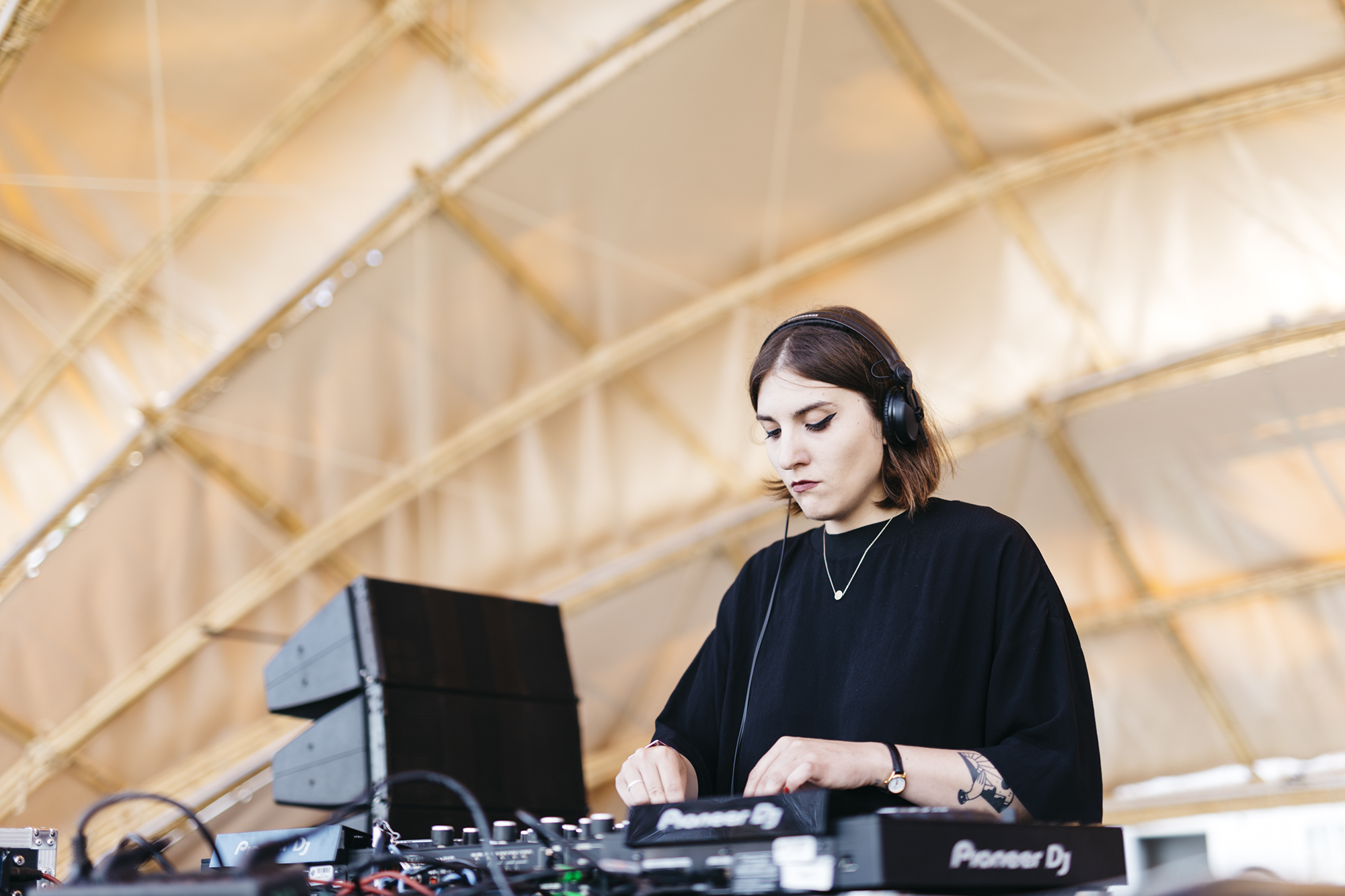
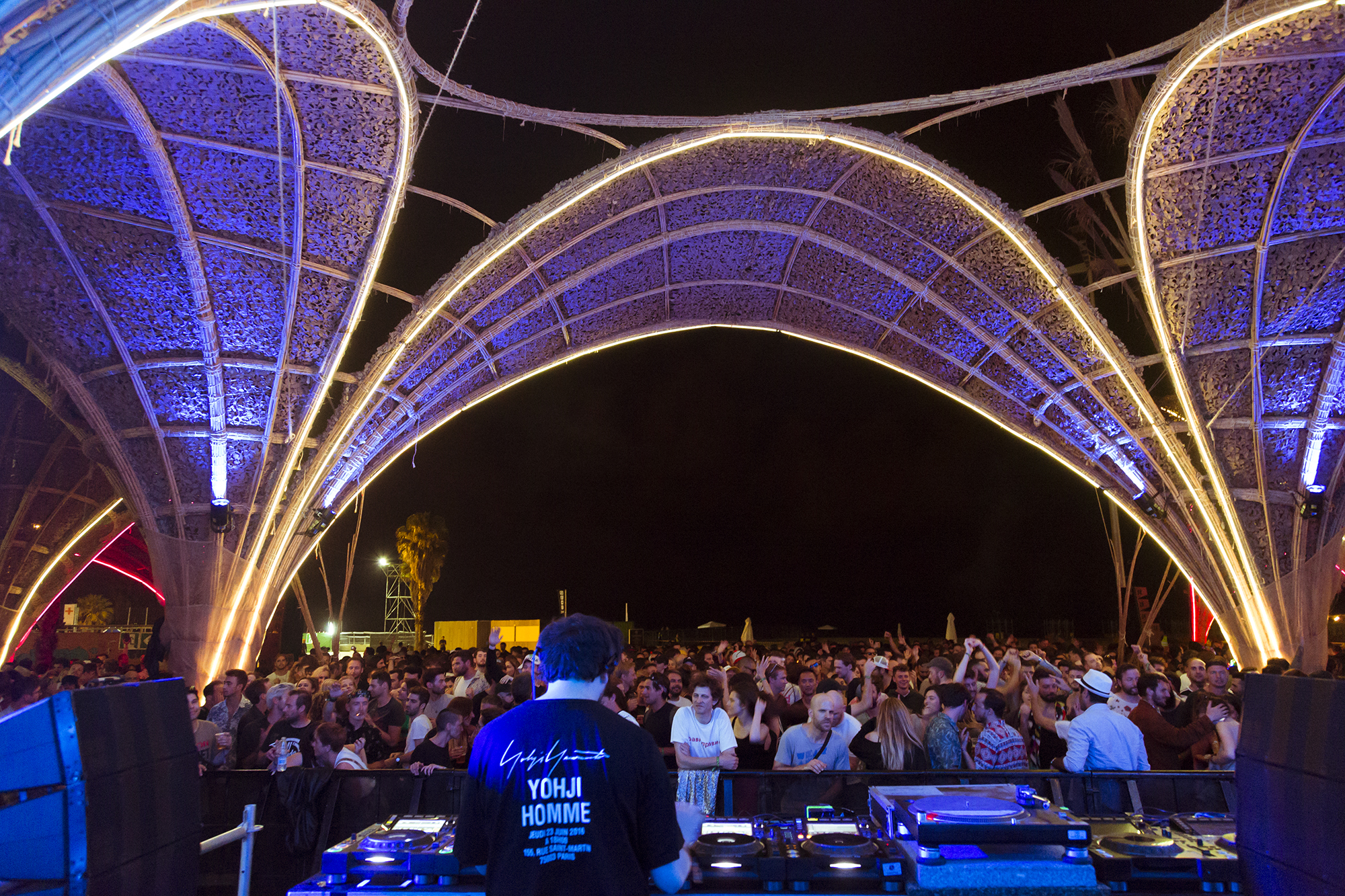
It goes without saying that Red Light Radio’s Orpheu The Wizard provided the ample follow-up to the varied Spanish selector. As ever with such a connoisseur of the obscure, the Dutchman worked his dark-arts in curating a mix of percussive-wave music, gliding with a restrained energy befitting for the onsetting sunset, as the dancefloor found it’s reduced-shuffled-tempo, grooving to smooth flowing set of Balearic styles. Next on the Hivern Disc’s stage entered Eva Geist, with an intricate live performance of melodic, space-synthesizer music, muted jams, lush electronics, and heartfelt whisperings.
Later that evening, performing at the Warp showcase in the cavernous Warehouse setting, Tutu (a.k.a. Gemma Planell) continued to churn out dancefloor jams, with a stunning set of experimental rave, techno, bass, and grime, all meticulously mixed. The DJ’s three-CDJ set managed to mix up beatless post-rave sounds with daring Autetchre-like techno, off-beat kicks, along with contemporary grime. The dedication to craft, diversity in styles, and playful mixing techniques left the crowd in a space between awe and foot-tapping grooves.
Elsewhere throughout the week, I managed to catch sets by DJ Seinfeld, whose nostalgic-rave-era house received the most cheers with “U,” along with now-turned cult-classic “Dedication” by Krystal Klear; and Shanti Celeste whose leftfield, hard-edged, melodic house created warm, lush vibes for those that were there.
Leaving Primavera is always hard as there is also something still going on, whether it’s The Black Madonna closing out on the mainstage, or John Talabot playing a late-night disco set. But with all good tapas courses, it’s not possible to take everything from the menu; you just have to make sure you come back for more at another time.

